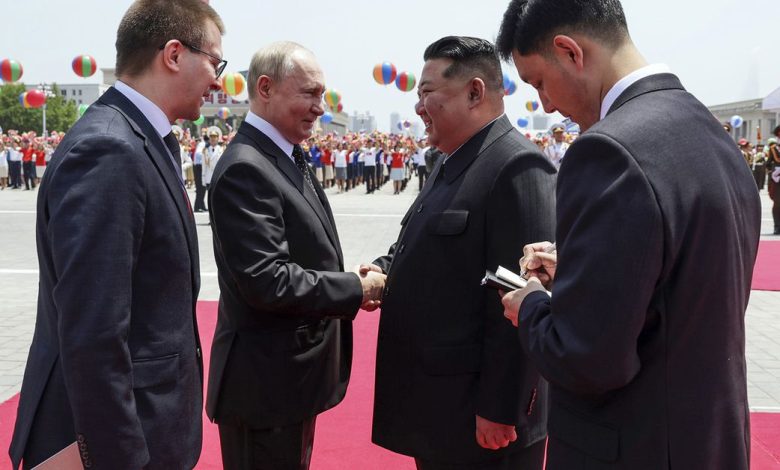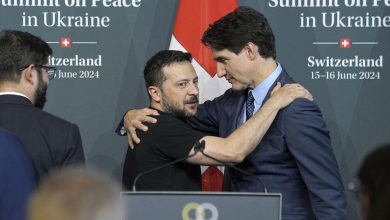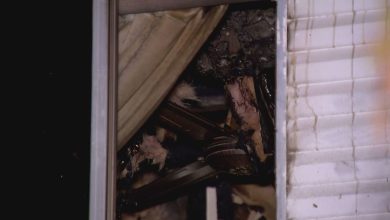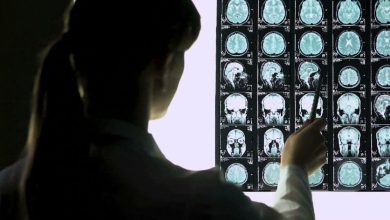Putin says Russia and North Korea have vowed to aid each other if attacked in new partnership deal

[ad_1]
Russian President Vladimir Putin and North Korean leader Kim Jong Un signed a partnership that includes a pledge to help each other if either side is attacked during a summit in Pyongyang on Wednesday as both face escalating standoffs with the West.
Putin’s first visit to North Korea in 24 years comes amid growing concern over an arms deal in which the country provides Moscow with much-needed munitions for its war in Ukraine in exchange for economic aid and technology transfers that could boost the threat , represented by Kim’s nuclear weapons and missile program.
It was not clear what kind of aid the deal, described as a “comprehensive strategic partnership,” would require.

Speaking after the signing ceremony, Kim called the deal “the strongest treaty ever signed between the two countries, which brings their relationship to the level of an alliance and will facilitate cooperation in various fields, including politics, economy, culture and military.”
Putin said security and international issues took up much of the talks with Kim, according to Russian state media. He also said that Russia would not rule out the development of military-technical cooperation with North Korea within the framework of the deal.
Kim was quoted as saying the agreement was peaceful and defensive in nature. “I have no doubt that this will become a driving force accelerating the creation of a new multipolar world,” he was quoted as saying.
Russia and North Korea also signed agreements on cooperation in the fields of healthcare, medical education and science, Russian state media reported, citing the Kremlin website.
On his arrival at night, Putin was greeted by Kim, who shook his hands, hugged him twice and rode him from the airport in a limousine in a huge motorcade that rolled through the brightly lit streets of the capital, where buildings were decorated with giant Russian flags and portraits of Putin.

After spending the rest of the night in a state guesthouse, Putin attended a lavish welcome ceremony in the city’s central square, where he and Kim greeted an honor guard and walked a red carpet. Kim then introduced key members of his leadership, including Foreign Minister Choe Song Hui; chief aide and secretary of the ruling party Jo Yong-won; and the leader’s powerful sister, Kim Yo Jong.
The square was filled with what appeared to be tens of thousands of spectators, including children holding balloons and people wearing coordinated red, white and blue T-shirts of the Russian and North Korean flags. Huge crowds lined the streets to greet Putin’s motorcade, chanting “Welcome Putin” and waving flowers and North Korean and Russian flags.
At the start of the talks, Putin thanked Kim for North Korea’s support for his war in Ukraine, part of what he said was a “fight against the imperialist hegemonic policies of the US and its satellites against the Russian Federation.”
He said the two planned to sign “a new basic document (which) will form the basis of our ties in the long term,” hailing ties that he traced back to the Soviet Army fighting the Japanese Army on the Korean Peninsula in the final moments of World War II and Moscow’s support for Pyongyang during the Korean War.
Kim said the “fiery friendship” between Moscow and Pyongyang is now even closer than in Soviet times and pledged “full support and solidarity to the Russian government, army and people in carrying out the special military operation in Ukraine to protect sovereignty , security interests and territorial integrity.”

Kim has used similar language in the past, consistently saying North Korea supports what he describes as just action to protect Russia’s interests and blaming the crisis on the “hegemonic policy” of the US-led West. It was not immediately clear what that support might look like.
North Korea is under heavy UN Security Council sanctions over its weapons program, while Russia also faces sanctions from the United States and its Western partners over its aggression in Ukraine.
US and South Korean officials have accused the North of providing Russia with artillery, missiles and other military equipment for use in Ukraine, possibly in exchange for key military technology and aid. Both Pyongyang and Moscow deny allegations of arms transfers from North Korea, which would violate multiple UN Security Council sanctions that Russia previously approved.
Along with China, Russia has provided political cover for Kim’s continued efforts to develop his nuclear arsenal, repeatedly blocking US-led efforts to impose new UN sanctions on the North over its weapons tests.
In March, a Russian veto at the UN ended monitoring of UN sanctions against North Korea over its nuclear program, prompting Western accusations that Moscow is seeking to evade scrutiny as it buys weapons from Pyongyang for use in Ukraine.

Putin’s foreign affairs adviser Yuri Ushakov told reporters in Pyongyang that the two leaders exchanged gifts after the talks. Putin presented Kim with a Russian-made Aurus limousine and other gifts, including a tea set and a navy officer’s dagger. Ushakov said Kim’s gifts to Putin included artwork depicting the Russian leader.
Russian media reported earlier that Kim would host a reception and Putin was expected to leave Wednesday evening for Vietnam.
In Washington, US Secretary of State Anthony Blinken said Putin’s visit to North Korea illustrated how Russia is trying, “desperately, to develop and strengthen relations with countries that can provide it with what it needs to continue the war of aggression that began against Ukraine”.
The North may also seek to increase labor exports to Russia and other illicit activities to earn foreign currency in violation of UN Security Council sanctions, according to a recent report by the Institute for National Security Strategy, a think tank. operated by South Korea’s main spy agency. There will likely be talks to expand cooperation in agriculture, fisheries and mining and to further promote Russian tourism in North Korea, the institute said.

Tensions on the Korean Peninsula are at their highest point in years, with the pace of both Kim’s weapons tests and joint military exercises involving the United States, South Korea and Japan increasing in the blink of an eye.
The Koreas also engaged in Cold War-style psychological warfare that involved North Korea dumping tons of garbage on the South with balloons and the South broadcasting anti-North Korean propaganda on its loudspeakers.
[ad_2]




